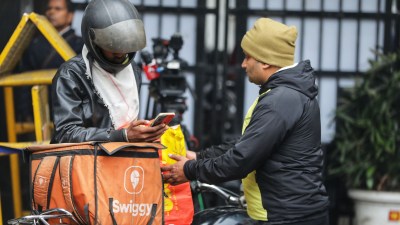Code, Indian
8216;The Da Vinci Code8217; controversy: the IB minister has no business styling himself chief censor

A conspiracy theory is doing the rounds. It reveals a plot by Information and Broadcasting Minister Priyaranjan Dasmunshi to assert his responsibility to check whether The Da Vinci Code is safe for public viewing simply to beat a hectic parliamentary schedule. These are presumably the perks of the office. The Tom Hanks starrer is the most eagerly awaited release of the summer, and even a veteran politician must muster immense guile to arrange a private, advance screening. But, alas, the real world 8212; unlike the very fictional one portrayed in Dan Brown8217;s bestseller, from which the film is adapted 8212; is far simpler. In the harsh light of facts, even the most alluring conspiracy theories collapses into rather mundane explanations. So, after following Brown8217;s swirl of theories of the Vatican8217;s suppression of the sacred feminine, do turn to his publisher8217;s classification of the book: fiction. Even the Church, and the much angered Opus Dei, say so.
And take Dasmunshi8217;s pleas that he8217;ll not do anything to enrage the sensibilities of Catholic organisations, and see them for what they are: his ministry8217;s innate penchant for censorship. But the minister should know the dangers of offering himself as the interface between a creative work ready for international release and religious organisations demanding a ban. For one, it indicates that for Sansad Bhavan, India is still a nanny state. The Da Vinci Code has already been through the established certification process, and cleared by the Censor Board. And for all its recourse to mention of Renaissance secret societies, its plot is extremely simple and free of deep nuance. By putting in abeyance that clearance, Dasmunshi is only highlighting the totalitarian powers of his office.
But Dasmunshi8217;s move to insinuate himself in the entire controversy carries a bigger peril. It involves the government in identity politics of the most volatile sort. To give away some of the suspense, Dan Brown makes some extremely audacious claims about a family line initiated by Jesus. Is it the minister8217;s case that he is authorised to decide whether this assertion, in a work of fiction, would hurt the sensitivities of a person of faith? This is dangerous terrain for a secular government to be dragged into. The minister, and the government, would be best advised to extricate themselves from this certification mess.
- 01
- 02
- 03
- 04
- 05































